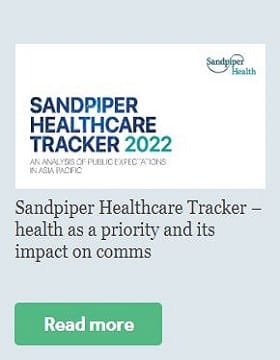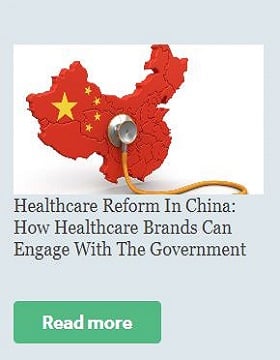
Davos – the new hot place for communicators?

Sandpiper welcomes four new hires in Singapore and Hong Kong!
Combating the spread of misinformation about the coronavirus
By Saskia Kendall, Head of Health
7 February 2019

“Over a month after it was first identified, the novel coronavirus remains front of mind, top of government agendas and on the front pages of daily newspapers. It is provoking concern as it conjures up images and memories of the SARS outbreak of 2003. But much has changed since then. Along with vast improvements in public health behaviour and services, how we communicate has also changed fundamentally. The latter could shape the ultimate impact of the disease.
“Information, news opinion, and personal stories permeates every part of our daily lives. This is a different world from the era of SARS, an outbreak that began one year before Mark Zuckerberg and his college roommates started Facebook. People now have instant access for information, aren’t bound to one news outlet and will seek out content that they are interested in, which tend to reconfirm their opinions, i.e. confirmation bias. While the proliferation of and access to information makes the sharing of public health messages far easier and rapid, it also enables misinformation to spread at a faster rate than the virus itself, by reconfirming people’s underlying fears.
“Much remains unclear about the risk and characteristics of the virus. We do know that it isn’t as deadly as SARS but that it is more readily spread. But the exact patterns will remain unclear for the time being. This understandably provokes emotional reactions like fear and anxiety. We all want to desperately protect those we care about, especially older relatives or young children, and particularly from a disease that as yet has no known treatment. In this climate of fear, people are more likely to share information that reinforced their concerns, whether or not they are sure it is from a verified source, making it fertile ground for the spread of misinformation and unintended and unnecessary panic. Combating misinformation quickly and clearly is vital to preventing escalation, as is providing factual updates regularly. Independent objective expert advice and information is key. This is as true for businesses in crisis situations, as it is for governments and experts here.
“Emotional reactions also play a role in the sharing of positive stories as well. Many healthcare businesses are also working with the Chinese government to provide support, funding and technology, while others are beginning to try to develop vaccines for the virus. These investments are important opportunities for businesses to show their commitment to patients, and demonstrate how they are putting society at the heart of their business.
“In the current environment, giving clarity to action being taken and empowering individuals to take responsibility, is paramount. Many lessons have been learnt since 2003. China’s reaction has been much swifter than SARS and they, as well as many markets in the region, have implemented travel bans and quarantine procedures to contain the virus. On top of this, enabling people to take an active role in reducing the spread of the disease and mitigating their own risk, is reassuring and empowering.
“Despite being in the digital age, with a huge amount of information and opportunities at our finger-tips, our actions are very much governed by our emotions and underlying social nature. Organisations should bear in mind these underlying drivers and innate biases as the true picture of the outbreak becomes clearer and we move to the next stage in fighting the virus.”
You may also like:





